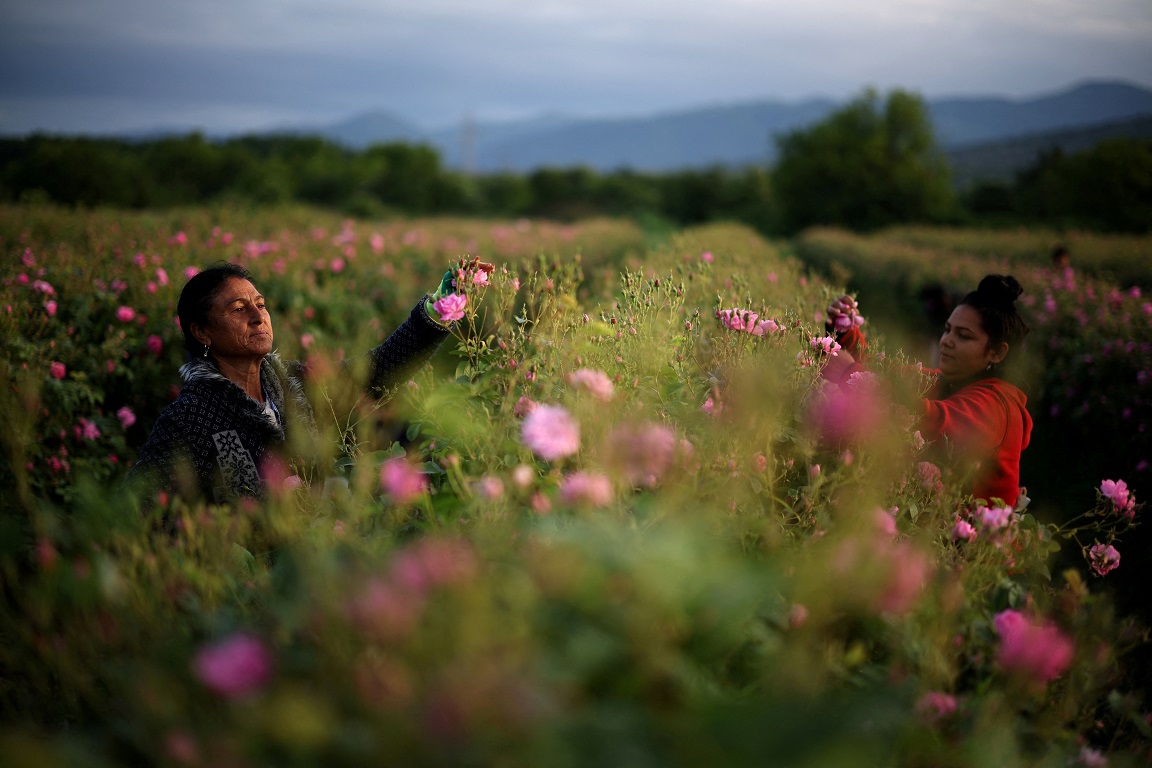11 Dec 2024

Tired Earth
By The Editorial Board

Bulgaria, a European Union member country in the southeastern Balkans, is one of the top global producers of fragrant rose oil that is also used in the cosmetics industry.
The best rose oil is produced in its central Rose Valley where, historians say, the flowers have been cultivated as crops since the ancient kingdom of Thrace in the 5th-3rd centuries BC.
The first oil factory was opened in 1820 in the nearby town of Kazanlak.
The process of making the 2 to 3.5 tons of rose oil produced in Bulgaria annually is not easy. For one gram of rose oil, more than 1,000 rose petals must be plucked by hand in the early morning as essential oil content is highest around 7 a.m.
“Condensation forms each evening and clings to the rose, allowing the oil in the blossom to be at its best,” said Miroslav Terziev, a rose farmer in the village of Cherganovo.
Petals are also used for products including rose water, rose jam, rose tea and even rose brandy.
The quality of the petals and oil is heavily dependent on weather conditions, with a combination of heat and humidity crucial, said Todor Nikolaev, chief technologist at the Terra Roza distillery.
He noted that with the recent mild winter and a very warm March, the roses began to bloom earlier this year and the picking season started about three weeks ahead of normal.
“The month of May is quite rainy, so the flowers do not bloom all at once, which allows for a good picking of the gardens. Low temperatures prevent the evaporation of oil – the season is favourable for everyone in the production system.”
Scientists say climate change over recent decades has caused plants to start blooming weeks earlier than previously.
“We checked our archive from 1987 and found that the active, mass onset of flowering of rosebushes was between 10 and 20 June. And we have roses today that start blooming a month earlier,” said Valentin Kazandjiev, an agro-meteorologist at the National Institute of Meteorology and Hydrology in Sofia.
Kazandjiev said farmers facing climate change should focus on technologies that mitigate its impact, while scientists should recommend different geographical zones for different crops every decade.
Source : euractiv.com
Comment